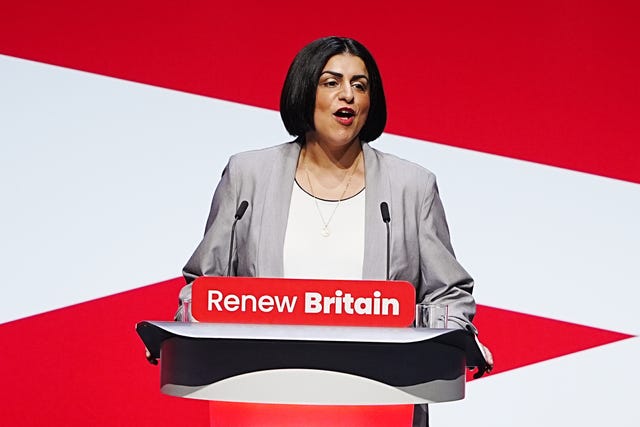New applications to the existing refugee family reunion route have been suspended since September.
Sir Keir Starmer has said there will be no “golden ticket” to settling in the UK under plans to require refugees to “earn” their right to stay long term.
The Government plans to end automatic family union rights for those granted asylum in the UK and change the requirements for long-term settlement.
New applications to the existing refugee family reunion route have been suspended since September.
The Prime Minister will hold talks on the plans and how European countries can work together to tackle illegal migration at the European Political Community (EPC) summit on Thursday.
Sir Keir said: “I believe that if you want to come to the UK, you should contribute to our society.
“That is the tolerant and fair approach to migration that our communities are built on, but the current system is not fit for purpose.
“That is why we’re making fundamental changes to what those granted asylum are afforded in the UK.
“Settlement must be earned by contributing to our country, not by paying a people smuggler to cross the Channel in a boat.”
He said the UK would continue to welcome “genuine refugees fleeing persecution” but must also address the “pull factors” driving illegal small boat crossings.
“There will be no golden ticket to settling in the UK, people will have to earn it,” he added.
He will also announce a new partnership to tackle the causes of migration upstream in Western Balkan countries in a meeting with Danish Prime Minister Mette Frederiksen.
The plan, backed by up to £3 million, will include encouraging people to stay in the region and take up jobs there.

Home Secretary Shabana Mahmood will set out reforms in full later in the autumn that will see refugees face a longer route to resettlement.
It will require them to contribute to the UK and they will not have the automatic right to bring their families to join them.
Refugees will still be entitled to “core protection” and not returned home under the changes, the Government says, but a “new, longer route to settlement requiring them to contribute, replacing the current five years” will apply.
The Home Secretary said earlier this week at the Labour party conference that tougher conditions would be introduced to secure indefinite leave to remain.
Migrants will need to be in work, not on benefits, have a high standard of English and no criminal record.
They will also need to reach a certain level of national insurance contributions and contribute, for example by working in their local community.
The Refugee Council warned that stopping families from reuniting would push more people to come to the UK using smugglers and said family reunion visas overwhelmingly support women and children.
Jon Featonby, chief policy analyst at the Refugee Council, said: “These unworkable policies have been promised before and we know that they do not have any impact on the number of small boats.
“The previous government tried and failed to put people off taking risky journeys by reducing the rights of refugees once they were in the UK, restricting both family reunion and settlement.
“This approach didn’t work then and there is no evidence to suggest it will work now. It will, however, succeed in damaging integration, making refugees feel unsafe and forcing children to grow up without their parents.
“In reality, restricting family reunion only pushes more desperate people into the arms of smugglers in an effort to reunite with loved ones.”
Shadow home secretary Chris Philp called the changes a “gimmick” and said Sir Keir should repeal the Human Rights Act for immigration matters as the Conservatives have proposed.
He said: “Tweaking family rules is another Starmer gimmick that will make no difference whatsoever – just like his smash the gangs gimmick, and his 11,000 in, one out gimmick.”
The number of migrant arrivals on small boats has topped 34,000 in 2025 so far, marking a record for this point in the year since data on Channel crossings was first reported in 2018.

